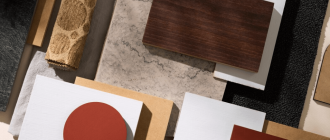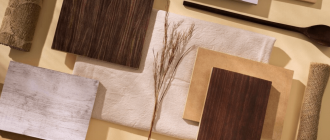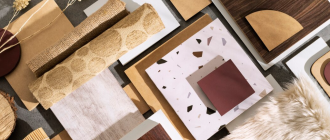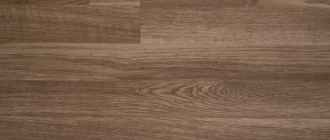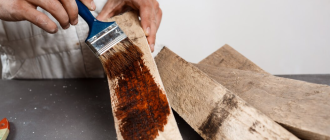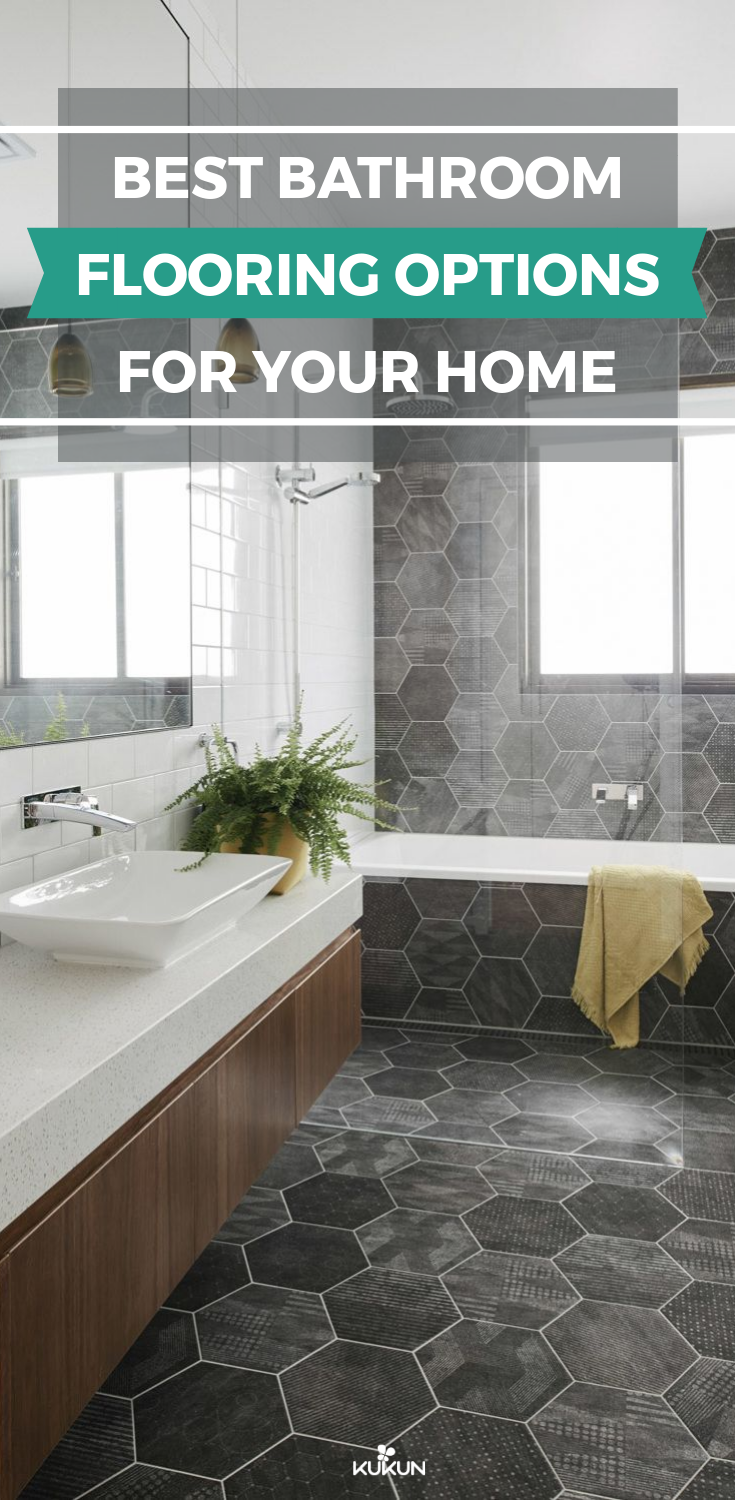
Best Bathroom Flooring Options
When it comes to choosing the best flooring for your bathroom, there are a variety of options to consider. The right flooring can not only enhance the overall aesthetic of your space, but also provide durability and resistance to water and moisture, which is crucial in a bathroom environment.
One of the top options for bathroom flooring is ceramic tile. Ceramic tile is not only stylish and versatile, but it is also waterproof and easy to clean. It comes in a wide range of colors and patterns, allowing you to create a customized look that matches your personal style.
Another popular choice for bathroom flooring is vinyl. Vinyl flooring is known for its affordability and durability. It is also resistant to water and moisture, making it a great option for bathrooms. Additionally, vinyl flooring comes in a variety of designs, including those that mimic the look of wood or tile.
If you are looking for a more luxurious option, consider natural stone flooring. Natural stone, such as marble or travertine, can add a touch of elegance to your bathroom. It is important to note, however, that natural stone requires regular maintenance and sealing to keep it looking its best.
Ultimately, the best bathroom flooring option will depend on your personal preferences and budget. Whether you choose ceramic tile, vinyl, or natural stone, investing in quality flooring will ensure that your bathroom remains beautiful and functional for years to come.
Top Bathroom Flooring Options
When it comes to choosing the best flooring for your bathroom, there are several options to consider. The right flooring can not only enhance the aesthetic appeal of your bathroom, but also provide functionality and durability. Here are some top bathroom flooring options to help you make the best choice for your space.
- Ceramic or Porcelain Tile: Ceramic or porcelain tile is a popular choice for bathroom flooring due to its water resistance and durability. It is available in a wide range of colors, patterns, and sizes, allowing you to create a custom look for your bathroom.
- Vinyl: Vinyl flooring is another popular option for bathrooms because of its affordability and water resistance. It is available in a variety of styles, including sheet vinyl, luxury vinyl tile (LVT), and luxury vinyl plank (LVP). Vinyl flooring is easy to clean and maintain, making it a practical choice for bathrooms.
- Natural Stone: Natural stone, such as marble, granite, or limestone, adds a luxurious and timeless look to any bathroom. However, it requires regular maintenance and sealing to prevent water damage and staining.
- Laminate: Laminate flooring is a budget-friendly option that mimics the look of hardwood or stone. It is moisture-resistant and easy to install, making it a popular choice for DIY enthusiasts.
- Rubber: Rubber flooring is a practical choice for bathrooms, especially in homes with children or elderly individuals. It provides a non-slip surface and is resistant to water and stains. Additionally, rubber flooring absorbs sound, making it a quiet option for bathrooms.
When selecting the best bathroom flooring, consider factors such as your budget, desired style, maintenance requirements, and the level of water resistance needed. Each flooring option has its own strengths and weaknesses, so make sure to choose the one that meets your specific needs and preferences.
Flooring OptionAdvantages
Disadvantages
| Ceramic or Porcelain Tile | Water resistant, durable, versatile | Cold underfoot, can be slippery when wet |
| Vinyl | Affordable, water resistant, easy to clean | Prone to scratching, can discolor over time |
| Natural Stone | Luxurious, timeless, adds value to the home | Requires regular maintenance and sealing |
| Laminate | Affordable, easy to install | Not as water resistant as other options, can be easily damaged by moisture |
| Rubber | Non-slip, water resistant, absorbs sound | Can be expensive, limited design options |
With the wide variety of flooring options available, you can find the best choice for your bathroom that combines both style and functionality. Whether you prefer a timeless and luxurious look or a more budget-friendly and practical option, there is a bathroom flooring option that suits your needs.
Choosing the Best Bathroom Flooring
When it comes to selecting the best flooring for your bathroom, there are several options to consider. Each option has its pros and cons, so it’s important to choose the one that suits your needs and preferences.
1. Ceramic or Porcelain Tile: Ceramic and porcelain tiles are popular choices for bathroom floors due to their durability and water resistance. They are easy to clean and come in a variety of styles, colors, and patterns. However, they can be cold and slippery, so consider adding rugs or mats for safety and comfort.
2. Vinyl: Vinyl flooring is another common choice for bathrooms. It is affordable, easy to install, and comes in a wide range of styles and colors. Vinyl is also moisture-resistant and comfortable underfoot. However, it may not be as durable as other options and can be prone to scratches and tears.
3. Laminate: Laminate flooring offers a budget-friendly alternative to hardwood or tile. It is resistant to moisture and stains, making it suitable for bathrooms. Laminate comes in a variety of styles, including those that mimic the look of wood or tile. However, it may not be as durable as other options and can be damaged by standing water.
4. Natural Stone: Natural stone, such as marble or granite, can add an elegant and luxurious touch to your bathroom. It is durable and moisture-resistant, but it can be more expensive and require regular maintenance. Natural stone flooring can also be slippery when wet, so consider adding a non-slip treatment or rug.
5. Cork: Cork flooring is a sustainable and eco-friendly option for bathrooms. It is water-resistant, comfortable underfoot, and provides good insulation. Cork is available in a variety of colors and patterns, but it may require regular sealing to maintain its water resistance.
Remember to consider factors such as budget, durability, maintenance, and personal style when choosing the best flooring for your bathroom. It’s also a good idea to consult with a professional to ensure proper installation and to get advice on the most suitable option for your specific space.
Comparison of Bathroom Flooring Options
Flooring TypePros
Cons
| Ceramic or Porcelain Tile | Durable, water-resistant, easy to clean | Cold, slippery |
| Vinyl | Affordable, easy to install, moisture-resistant | Not as durable, prone to scratches |
| Laminate | Budget-friendly, moisture and stain-resistant | Not as durable, susceptible to water damage |
| Natural Stone | Elegant, durable, moisture-resistant | Expensive, requires maintenance, slippery when wet |
| Cork | Sustainable, water-resistant, comfortable | Requires regular sealing |
Take your time to explore these options and choose the best bathroom flooring that meets your needs and enhances the overall look of your space.
Factors to Consider for Bathroom Flooring
When it comes to choosing the best flooring option for your bathroom, there are several factors that you should consider. The bathroom is a high-moisture area, so the flooring material must be able to withstand the constant exposure to water and humidity. Additionally, it should be durable, slip-resistant, easy to clean, and able to complement the overall design of your bathroom. Here are some important factors to consider when choosing bathroom flooring:
- Water resistance: One of the most important factors to consider for bathroom flooring is its ability to resist water. Any flooring material you choose should be moisture-resistant and able to handle the frequent splashes and spills that occur in the bathroom. Options such as ceramic tile, vinyl, or porcelain are known for their water-resistant properties.
- Durability: Bathroom flooring should be able to withstand heavy use and regular cleaning. It should also be resistant to scratches, stains, and wear and tear. Hardwood flooring, for example, may not be the best choice for a bathroom due to its vulnerability to moisture and the potential for warping or buckling over time.
- Slip resistance: Safety is a top concern in the bathroom, where wet floors can be slippery and hazardous. Look for flooring materials that have a textured or non-slip surface to reduce the risk of falls. Ceramic tile, stone, or vinyl with a textured finish are good options for slip-resistant flooring.
- Maintenance: Consider the amount of maintenance required for the flooring material. Some materials, like natural stone, may require regular sealing to maintain their water resistance and appearance. On the other hand, vinyl and laminate flooring are low-maintenance options that are easy to clean and maintain.
- Aesthetics: The flooring you choose should complement the overall design and style of your bathroom. Consider the color, pattern, and texture of the flooring material to ensure it matches your preferred aesthetic. Some popular choices for bathroom flooring include ceramic tile, porcelain tile, vinyl, and natural stone.
By considering these factors, you can choose the best flooring option for your bathroom that meets your needs in terms of water resistance, durability, safety, maintenance, and aesthetics. Remember to also take into account your budget and the installation process for each flooring option.
Pros and Cons of Tile Flooring
Tile flooring is a popular choice for bathrooms due to its durability and water resistance. However, it also has its pros and cons. Here are some of the advantages and disadvantages of tile flooring:
Pros:
- Durability: Tile flooring is extremely durable and can withstand heavy foot traffic and impacts. It is resistant to scratches, dents, and stains, making it a long-lasting option for your bathroom.
- Water Resistance: Tile flooring is highly water resistant, which is essential in a bathroom where water spills and moisture are common occurrences. This makes it easy to clean and helps prevent water damage.
- Variety of Styles: Tiles come in a wide range of colors, patterns, and sizes, allowing you to create a unique and personalized look for your bathroom. Whether you prefer a modern, traditional, or eclectic style, there is a tile option to suit your taste.
- Easy Maintenance: Tile flooring is low maintenance and easy to clean. Regular sweeping and mopping are usually enough to keep it looking clean and fresh. In case of spills or stains, they can be easily wiped away without leaving any residue.
Cons:
- Hardness: Tile flooring can be hard and cold underfoot, especially during colder seasons. However, using radiant heating systems can help alleviate this issue.
- Installation Complexity: Installing tile flooring can be time-consuming and complex, especially if you are doing it yourself. It requires proper preparation, adhesive application, and grouting. Hiring a professional installer is recommended for optimal results.
- Slippery Surface: Some tile flooring options can be slippery when wet, which can be a safety concern in bathrooms. To reduce the risk of slipping, opt for tiles with a textured surface or use bath mats and rugs for added traction.
- Cost: Tile flooring can be more expensive than other options, such as vinyl or laminate. The cost can vary depending on the type of tiles you choose, the square footage of the bathroom, and the complexity of the installation.
Overall, tile flooring offers numerous benefits for bathrooms, such as durability, water resistance, and versatility in design. However, it is important to consider the potential drawbacks, such as the hardness and cost, before making a decision. Assess your needs and preferences to determine if tile flooring is the best choice for your bathroom.
Why Vinyl Flooring is a Good Choice
When it comes to choosing the best flooring option for your bathroom, vinyl flooring is a top choice. There are several reasons why vinyl is a good option for your bathroom:
- Durability: Vinyl flooring is known for its durability, which makes it an excellent choice for high-traffic areas like bathrooms. It can withstand heavy foot traffic, moisture, and daily wear and tear without losing its appearance.
- Water resistance: Vinyl flooring is naturally resistant to water, making it a perfect option for bathrooms. It can handle spills, splashes, and even standing water without getting damaged. This water resistance property also helps to prevent the growth of mold and mildew, keeping your bathroom clean and healthy.
- Easy maintenance: Vinyl flooring is incredibly easy to clean and maintain. It requires minimal effort to keep it looking its best. Regular sweeping or vacuuming, followed by mopping with a gentle cleaner, is usually enough to keep your vinyl flooring in great condition.
- Design options: Vinyl flooring comes in a wide range of designs, colors, and patterns. Whether you prefer the look of wood, stone, or tile, you can find vinyl flooring that mimics the appearance of these materials. This allows you to achieve the desired aesthetic for your bathroom without the high cost and maintenance requirements of the real thing.
- Affordability: Vinyl flooring is one of the most cost-effective flooring options available. It is typically less expensive than materials like ceramic tile or hardwood flooring. This makes it a great choice for homeowners on a budget who still want a beautiful and durable bathroom flooring.
In conclusion, vinyl flooring is a great choice for your bathroom due to its durability, water resistance, easy maintenance, design options, and affordability. Consider vinyl flooring as you make your decision for the best flooring option for your bathroom.
The Benefits of Laminate Flooring
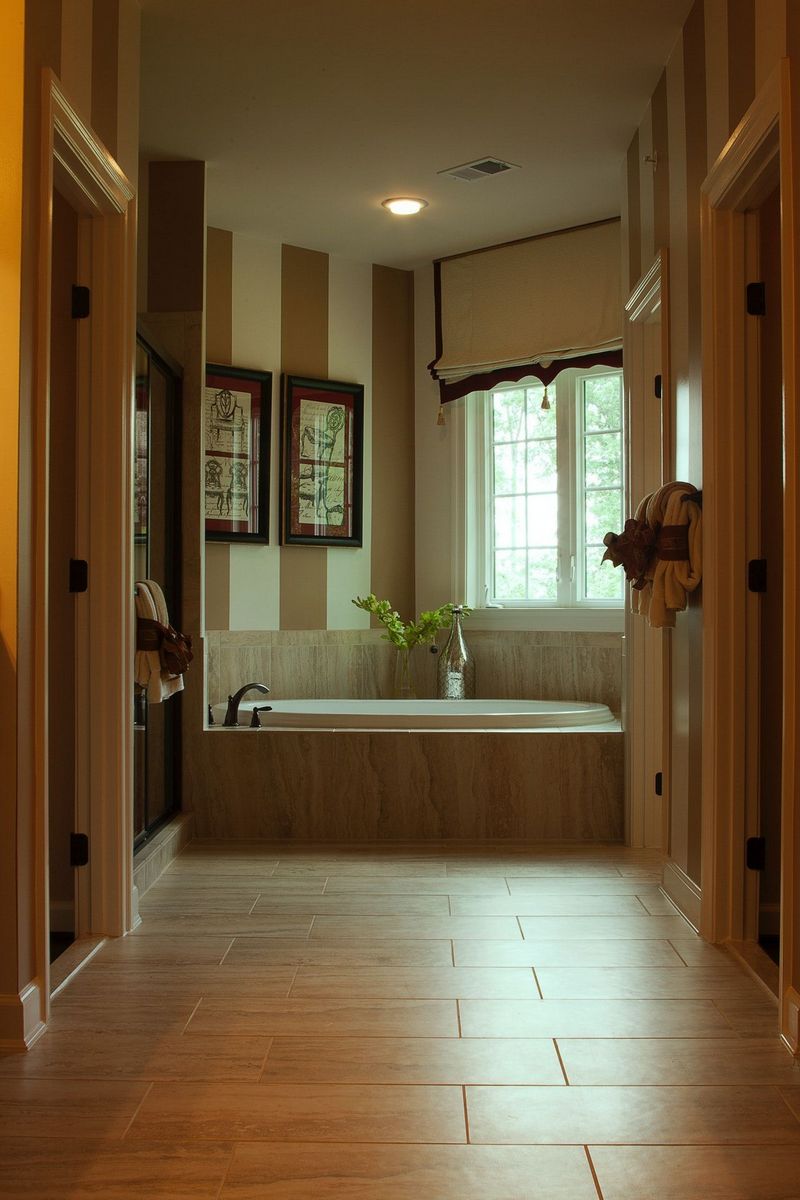
Laminate flooring is one of the popular options for bathroom flooring. It offers various benefits that make it a great choice for your space. Here are some of the advantages of laminate flooring:
- Durability: Laminate flooring is known for its durability. It is resistant to scratches, stains, and wear, making it ideal for high-traffic areas like bathrooms. With proper care, laminate flooring can last for many years.
- Water Resistance: Laminate flooring with water-resistant properties is available in the market. This feature is a significant advantage for bathroom flooring because it helps to prevent water damage. However, it is essential to note that laminate flooring is not entirely waterproof.
- Easy Installation: Laminate flooring is relatively easy to install, especially compared to other flooring options. It comes in planks or tiles that can be easily clicked or glued together. This feature makes it a popular choice for DIY enthusiasts.
- Wide Range of Designs: Laminate flooring offers a wide range of designs, patterns, and colors. It can mimic the look of hardwood, tile, or stone, giving you various options to match your bathroom’s aesthetic. You can choose a design that complements your overall bathroom decor.
- Easy Maintenance: Laminate flooring is relatively easy to maintain. Regular sweeping or vacuuming, along with occasional mopping, is usually enough to keep it clean. It does not require specialized cleaning products or extensive maintenance routines.
- Affordability: Laminate flooring is generally more affordable compared to other flooring options like hardwood or tile. It provides a cost-effective solution for bathroom flooring without compromising on quality or aesthetics.
Considering these benefits, laminate flooring is an excellent choice for your bathroom. It combines durability, water resistance, easy installation, a wide range of designs, easy maintenance, and affordability. It can create a beautiful and functional flooring option for your bathroom space.
Engineered Wood Flooring for Bathrooms
When it comes to choosing the right flooring for your bathroom, engineered wood can be a great option. Engineered wood flooring combines the natural beauty of wood with the durability and moisture resistance needed for a bathroom environment.
Engineered wood flooring is constructed by layering a real wood veneer on top of a plywood base. This construction helps to prevent the wood from warping or expanding when exposed to moisture, making it a suitable choice for bathrooms.
One of the advantages of engineered wood flooring is its versatility. It can be installed in both traditional and contemporary bathroom designs, adding warmth and beauty to any space. With a wide range of finishes and colors available, you can easily find the perfect engineered wood flooring to match your bathroom decor.
Another benefit of engineered wood flooring is its durability. The plywood base provides stability and strength, while the top layer of real wood adds a natural touch. This combination makes engineered wood flooring resistant to scratches and dents, ensuring that it will maintain its beauty even in high-traffic areas.
Maintenance is also relatively easy with engineered wood flooring. Regular sweeping or vacuuming and occasional mopping with a hardwood floor cleaner are usually all that is needed to keep your bathroom floor looking great.
However, it is important to note that while engineered wood flooring is more moisture resistant than solid wood flooring, it is still not completely waterproof. Therefore, it is important to promptly clean up any water spills or moisture that may accumulate on the floor to prevent damage.
In conclusion, engineered wood flooring is a great option for bathrooms due to its durability, moisture resistance, and versatility. Whether you prefer a traditional or contemporary bathroom design, engineered wood flooring can add warmth and beauty to your space. With proper maintenance, your engineered wood floor can stay looking great for years to come.
Natural Stone Flooring for a Luxurious Look
If you are looking for the best flooring option for your bathroom that combines beauty and durability, natural stone flooring is the perfect choice. With its luxurious appearance and excellent quality, natural stone flooring can transform your bathroom into a stunning retreat.
There are various types of natural stone flooring options available, each with its own unique characteristics:
- Marble: Marble is a timeless choice for bathroom flooring. With its elegant veining patterns and polished finish, marble adds a touch of sophistication to any space. However, it is important to note that marble is a porous material and requires regular sealing to prevent stains.
- Granite: Known for its durability and resistance to heat, moisture, and scratches, granite is a popular choice for bathroom flooring. It comes in a wide range of colors and patterns, making it easy to find the perfect match for your bathroom design.
- Travertine: With its unique textured appearance, travertine creates a warm and inviting atmosphere in your bathroom. It is available in a variety of earthy tones, giving your bathroom a natural, rustic look.
- Slate: If you prefer a more contemporary look, slate is an excellent choice. Its smooth texture and rich colors add a modern touch to your bathroom. Slate is also known for its slip-resistant properties, making it a safe flooring option.
In addition to its aesthetic appeal, natural stone flooring is highly durable and resistant to moisture, making it perfect for bathroom use. However, it is essential to properly maintain and seal natural stone flooring to ensure its longevity.
When selecting natural stone flooring for your bathroom, it is crucial to consider factors such as slip resistance, maintenance requirements, and compatibility with underfloor heating. Consulting with a professional can help you choose the best type of natural stone flooring for your specific needs and ensure a successful installation.
Cork Flooring: Eco-Friendly and Waterproof
Cork flooring is one of the best options for bathroom flooring as it combines eco-friendliness with water resistance. Made from the bark of cork oak trees, cork flooring is a natural and sustainable choice for your bathroom.
One of the main advantages of cork flooring is its ability to repel water. The natural properties of cork make it resistant to moisture, preventing it from absorbing water and causing damage to the flooring. This makes cork flooring an excellent choice for bathrooms where spills and water splashes are common.
In addition to being waterproof, cork flooring is also eco-friendly. Harvested from the bark of cork oak trees, cork is a renewable resource. The trees are not cut down during the harvesting process, allowing them to continue growing and providing a sustainable source of cork for future use.
Cork flooring is also a great choice for those looking for a softer and more comfortable feel underfoot. The natural elasticity of cork provides a cushioning effect, making it a comfortable surface to walk on. This is especially beneficial in bathrooms where people often walk barefoot.
Another advantage of cork flooring is its sound-absorbing properties. The cellular structure of cork creates a natural sound barrier, reducing noise transmission and making your bathroom quieter and more peaceful.
When it comes to maintenance, cork flooring is relatively easy to care for. It is naturally resistant to mold, mildew, and bacteria, making it a hygienic choice for bathrooms. Regular sweeping and occasional damp mopping are usually sufficient to keep cork flooring clean.
Overall, cork flooring is a top choice for bathroom flooring due to its eco-friendly nature, water resistance, comfort, and sound-absorbing properties. Consider cork flooring for your bathroom renovation and enjoy the many benefits it has to offer.
Porcelain Flooring: Durability and Style
When it comes to choosing the best flooring options for your bathroom, porcelain is always at the top of the list. This type of flooring offers a unique combination of durability and style that is hard to beat.
Porcelain is known for its incredible strength and resistance to wear and tear. It is made from a dense clay mixture that is fired at high temperatures, resulting in a hard and durable material. This makes porcelain flooring perfect for high-traffic areas like bathrooms, where it can withstand heavy foot traffic, moisture, and everyday use without showing signs of wear.
Not only is porcelain flooring durable, but it also offers a wide range of styles and designs to choose from. From classic marble looks to modern concrete finishes, there is a porcelain tile to suit any bathroom decor. The tiles can be glazed or unglazed, depending on your preferences. Glazed porcelain tiles have a protective layer that enhances their resistance to water, stains, and scratches, making them a great option for bathroom floors.
Another advantage of porcelain flooring is its low maintenance requirements. It is incredibly easy to clean, making it ideal for bathrooms where hygiene is a top priority. You can simply sweep or vacuum the floor to remove any dirt or debris, and then mop it with a mild detergent and warm water. No need for special cleaners or complicated maintenance routines.
Furthermore, porcelain flooring is also a great choice for bathrooms with underfloor heating systems. It has excellent thermal conductivity, meaning it can effectively transfer heat from the heating system to the surface of the floor. This results in a warm and comfortable bathroom experience, especially during the colder months.
In summary, porcelain flooring is one of the best options for your bathroom due to its durability, versatility in design, low maintenance requirements, and compatibility with underfloor heating. Consider this type of flooring if you want a stylish, long-lasting, and easy-to-maintain bathroom floor.
Bamboo Flooring for a Modern Bathroom
When it comes to choosing the best flooring options for your modern bathroom, bamboo is definitely worth considering. With its unique benefits and stylish appearance, bamboo flooring can add a touch of elegance to your bathroom.
Durability: Bamboo flooring is known for its exceptional durability, making it a perfect choice for a high-traffic area like the bathroom. It can withstand daily wear and tear, as well as moisture and humidity, without warping or getting damaged.
Water-resistant: Bamboo flooring is naturally water-resistant, thanks to its moisture-resistant properties. This makes it an ideal choice for bathrooms, where water spills and moisture are common.
Sustainability: Bamboo is considered one of the most sustainable flooring options available. It is a rapidly renewable resource, as bamboo plants can be harvested in as little as five years. Choosing bamboo flooring for your bathroom is an eco-friendly choice that helps preserve the environment.
Style: Bamboo flooring adds a modern and elegant touch to any bathroom. It comes in a variety of colors, from light natural tones to darker shades, allowing you to choose the one that best matches your bathroom decor. The natural grain patterns and smooth texture of bamboo flooring enhance the overall aesthetic appeal of your bathroom.
Easy to clean: Bamboo flooring is easy to maintain. Regular sweeping and occasional mopping with a damp cloth are usually all it takes to keep it looking clean and fresh. However, it’s important to avoid using excessive water or abrasive cleaners, as they can damage the bamboo’s surface.
Cost-effective: Bamboo flooring is an affordable option compared to many other flooring materials. Its long lifespan and low maintenance requirements make it a cost-effective choice in the long run.
In summary, bamboo flooring is one of the best options for a modern bathroom. Its durability, water resistance, sustainability, style, easy maintenance, and cost-effectiveness make it a practical and stylish choice that will elevate the look of your bathroom for years to come.
Rubber Flooring: Slip-Resistant and Easy to Clean
Rubber flooring is a popular choice for bathrooms due to its slip-resistant properties and ease of cleaning. It provides a safe and comfortable surface for wet areas, making it ideal for bathroom use.
The main advantage of rubber flooring is its slip-resistant nature. The texture and composition of rubber flooring create a surface that is resistant to slips and falls, making it a safe option for bathrooms, especially for children, the elderly, or individuals with mobility issues.
In addition to its slip-resistant properties, rubber flooring is also extremely easy to clean. It can be easily swept or vacuumed to remove dust and debris. For more thorough cleanings, a damp mop or sponge can be used with a mild soap or detergent. Rubber flooring is resistant to stains, making it a low-maintenance option for bathrooms.
Another benefit of rubber flooring is its durability. It is a resilient material that can withstand heavy foot traffic and moisture without deteriorating. Rubber flooring is also resistant to mold and mildew, making it suitable for humid bathroom environments.
Furthermore, rubber flooring comes in a variety of colors, patterns, and thicknesses, allowing for customization to suit different bathroom styles and preferences. It can be easily installed as tiles or sheet rolls, depending on the desired look and layout.
In summary, rubber flooring is a practical choice for bathrooms due to its slip-resistant properties, easy cleaning, durability, and customization options. It provides a safe and comfortable surface that is suitable for all members of the household. Consider rubber flooring as one of the top options for your bathroom flooring needs.
Carpet Tiles for a Cozy Bathroom
When it comes to bathroom flooring, choosing the best option is crucial. You want something that not only looks great but also provides comfort and durability. That’s where carpet tiles come in.
Carpet tiles are a popular choice for bathrooms because they offer a cozy and warm feel to the space. Unlike traditional carpet, carpet tiles are easy to install and maintain. They are made up of small square sections of carpet that can be easily replaced if one gets damaged.
One of the main advantages of carpet tiles is their versatility. They come in a wide range of colors and patterns, allowing you to create a unique look for your bathroom. Whether you prefer a neutral tone or a bold design, there is a carpet tile option that will suit your style.
In addition to their aesthetic appeal, carpet tiles also provide insulation and soundproofing properties. This can be especially beneficial in a bathroom, as it helps to reduce noise and keep the space warm.
Another advantage of carpet tiles is their durability. They are designed to withstand heavy foot traffic, making them a great choice for bathrooms that are frequently used. Additionally, their water-resistant properties make them suitable for wet areas.
ProsCons
|
|
In conclusion, carpet tiles are a great choice for a cozy bathroom. They offer comfort, aesthetics, durability, and insulation properties. However, it’s important to consider the potential for mold growth and the need for professional installation. Overall, carpet tiles can provide a cozy and inviting atmosphere in your bathroom.
Concrete Flooring for a Contemporary Design
If you are looking for the best flooring option for your bathroom with a contemporary design, concrete could be the perfect choice for you. Concrete flooring offers a sleek and modern look that can transform your bathroom into a stylish space.
Concrete flooring is known for its durability and longevity. It is resistant to moisture and can withstand the constant exposure to water and humidity in a bathroom. This makes it an ideal choice for a space where water is frequently present.
One of the best features of concrete flooring is its versatility. It can be customized to match any design aesthetic. Whether you prefer a minimalist look or a bold and vibrant style, concrete flooring can be tailored to your unique preferences.
There are a variety of options available when it comes to concrete flooring. You can choose from different colors, finishes, and patterns to create the perfect look for your bathroom. From a sleek and polished surface to a textured and rustic appearance, the possibilities are endless.
Another advantage of concrete flooring is its low maintenance requirements. It is easy to clean and doesn’t require frequent sealing or refinishing. Simply sweep or mop the floor regularly to keep it looking clean and fresh.
However, it’s important to note that concrete flooring can be cold and hard underfoot. To make it more comfortable, consider using area rugs or installing underfloor heating.
In conclusion, if you are seeking a flooring option that is durable, versatile, and low maintenance, concrete flooring is one of the best options for a contemporary bathroom design. With its modern look and customizable features, it can create a sophisticated and stylish atmosphere in your space.
Hardwood Flooring: Timeless Beauty for Your Bathroom
When it comes to bathroom flooring options, hardwood is often overlooked. However, hardwood flooring can bring a touch of elegance and warmth to your bathroom that is unmatched by other flooring options.
Hardwood flooring is known for its durability and longevity. With proper care and maintenance, hardwood floors can last for decades, making them a wise investment for your bathroom.
One of the main advantages of hardwood flooring in the bathroom is its timeless beauty. The natural patterns and colors of hardwood add a touch of warmth and sophistication to any space. Whether you prefer a light oak or a rich mahogany, there is a hardwood option to suit your style and preference.
While many people may worry about the moisture and humidity levels in the bathroom damaging hardwood flooring, with proper installation and maintenance, hardwood can be a great choice for this space. It is important to choose a hardwood that has been properly treated or finished to protect it from moisture. Additionally, it is recommended to place a rug or mat near the shower or bathtub to catch any excess water.
Another benefit of hardwood flooring in the bathroom is its versatility. Hardwood can be easily paired with a variety of design styles, from traditional to contemporary. Whether you are going for a rustic, farmhouse look or a sleek, modern aesthetic, hardwood flooring can complement your bathroom decor perfectly.
Additionally, hardwood floors are relatively easy to clean and maintain. Regular sweeping or vacuuming, along with occasional mopping, is usually all that is needed to keep your hardwood floors looking beautiful. It is important to avoid using excessive water or harsh cleaners, as these can damage the wood.
In conclusion, hardwood flooring is a timeless and beautiful option for your bathroom. With its durability, timeless beauty, and versatility, hardwood can enhance the overall aesthetic of your bathroom. Just make sure to choose the right type of hardwood and follow proper maintenance techniques to ensure its longevity in a moisture-prone environment.
Questions and answers:
What are the best flooring options for a small bathroom?
For a small bathroom, it’s best to choose a flooring option that is durable, water-resistant, and visually appealing. Some great options include ceramic or porcelain tiles, luxury vinyl tiles, and natural stone like marble or granite.
Can I install hardwood flooring in a bathroom?
While hardwood flooring can add a warm and luxurious touch to a bathroom, it’s not recommended due to the high moisture levels. Over time, the water can cause the wood to warp and expand. However, if you still want the look of hardwood, you can consider engineered wood or wood-look porcelain tiles.
What is the easiest flooring to clean in a bathroom?
Ceramic or porcelain tiles are generally the easiest flooring to clean in a bathroom. They are water-resistant, durable, and easy to wipe clean. Additionally, vinyl flooring is also easy to clean as it is water-resistant and can be mopped or wiped clean with ease.
Which flooring option is the most budget-friendly?
When it comes to budget-friendly bathroom flooring options, vinyl flooring is often the most affordable choice. It is available in a wide range of styles and colors, and it mimics the look of more expensive materials like hardwood or stone, but at a fraction of the cost.
What are the benefits of using natural stone flooring in a bathroom?
Natural stone flooring, such as marble or granite, can add a luxurious and elegant touch to a bathroom. It is highly durable, easy to clean, and can withstand high levels of moisture. Additionally, natural stone has a unique and timeless beauty that can enhance the overall aesthetic of the space.
What are some popular bathroom flooring options?
Some popular bathroom flooring options include ceramic or porcelain tile, vinyl, laminate, and natural stone.
What is the best flooring option for a small bathroom?
The best flooring option for a small bathroom is vinyl. It is affordable, durable, and comes in a variety of styles and colors that can make a small space appear larger.

